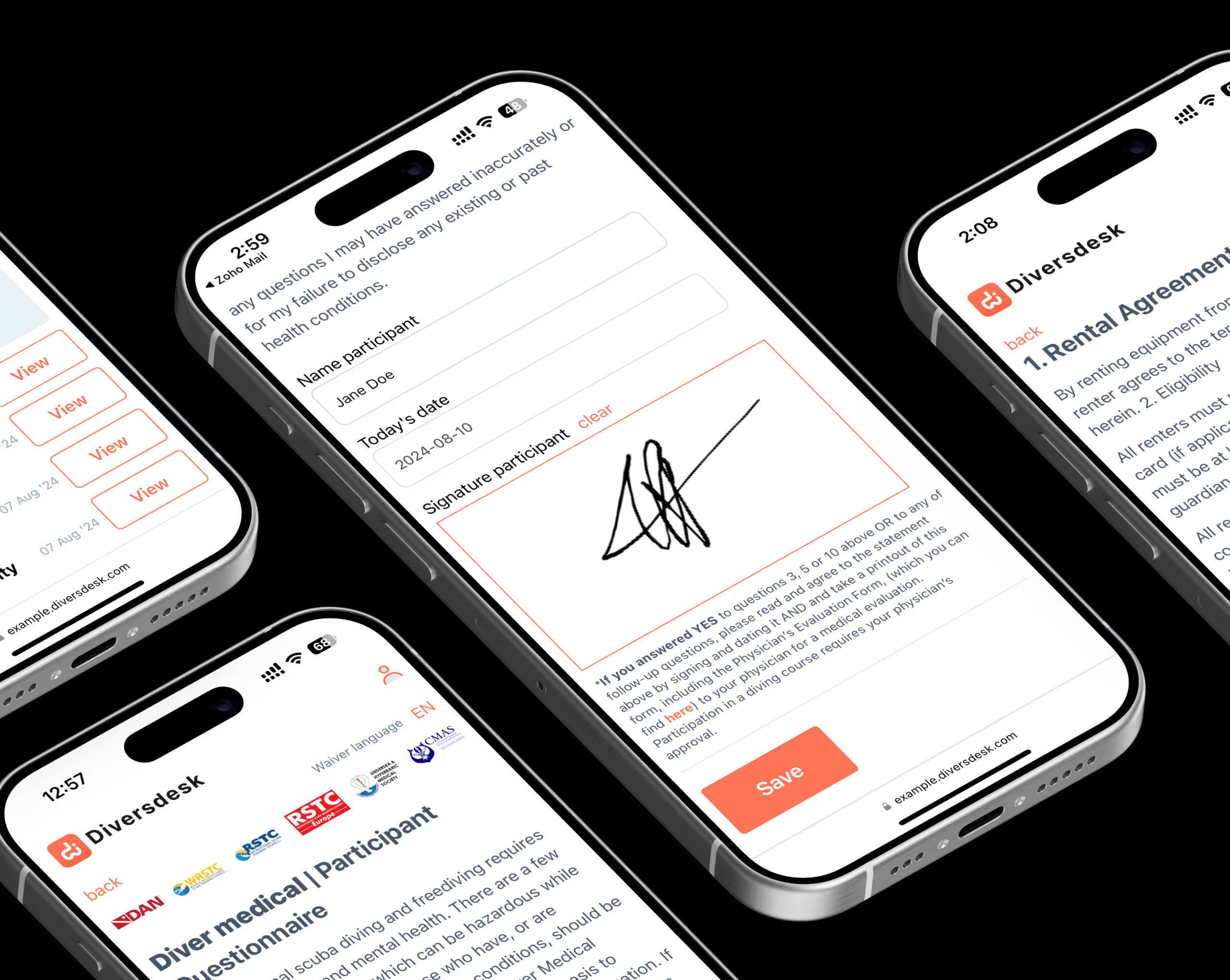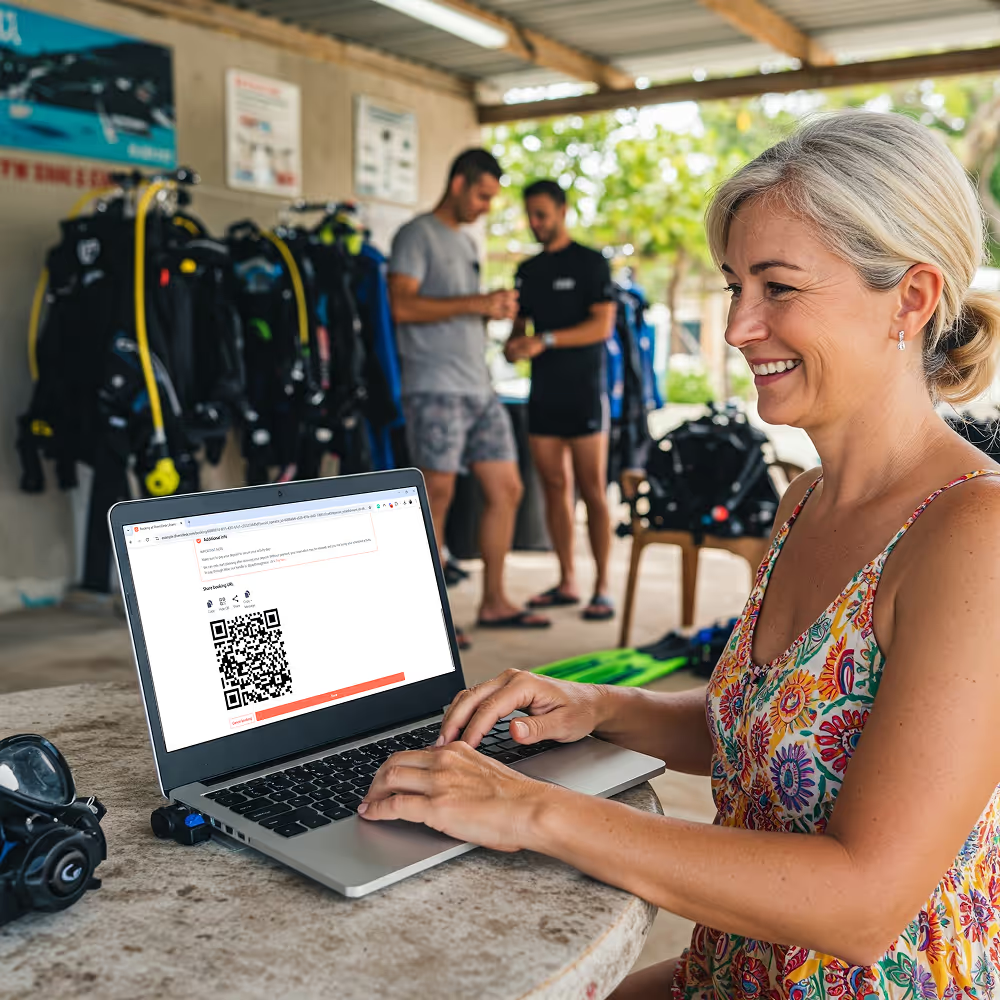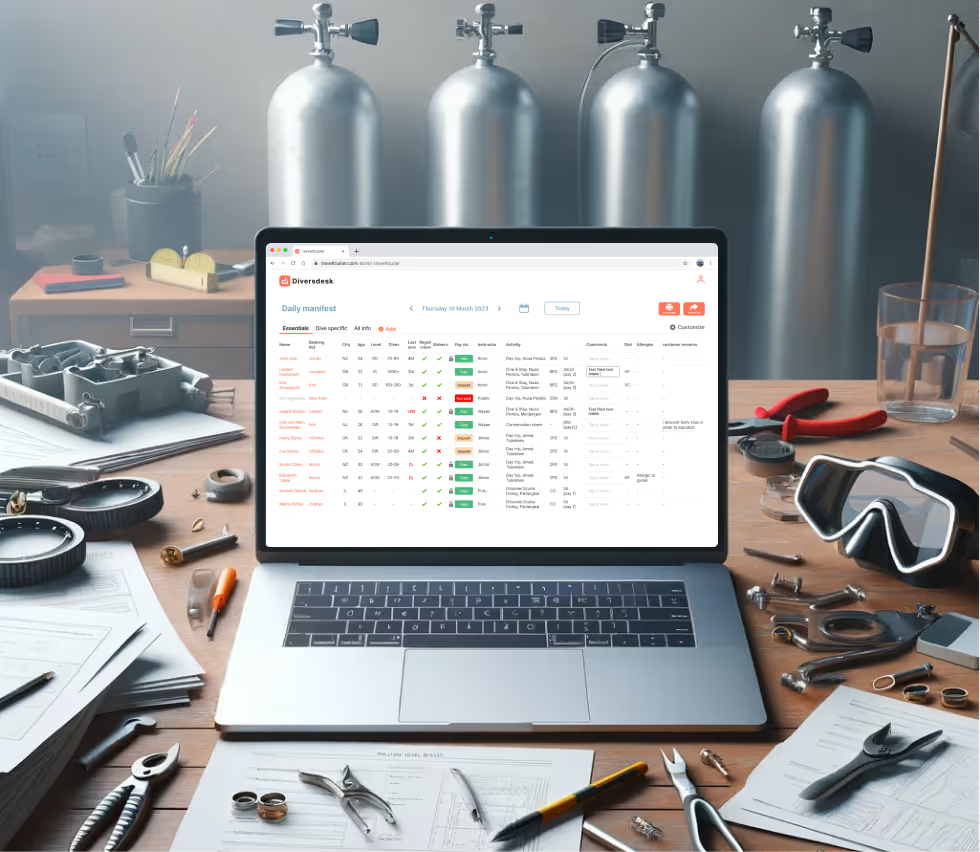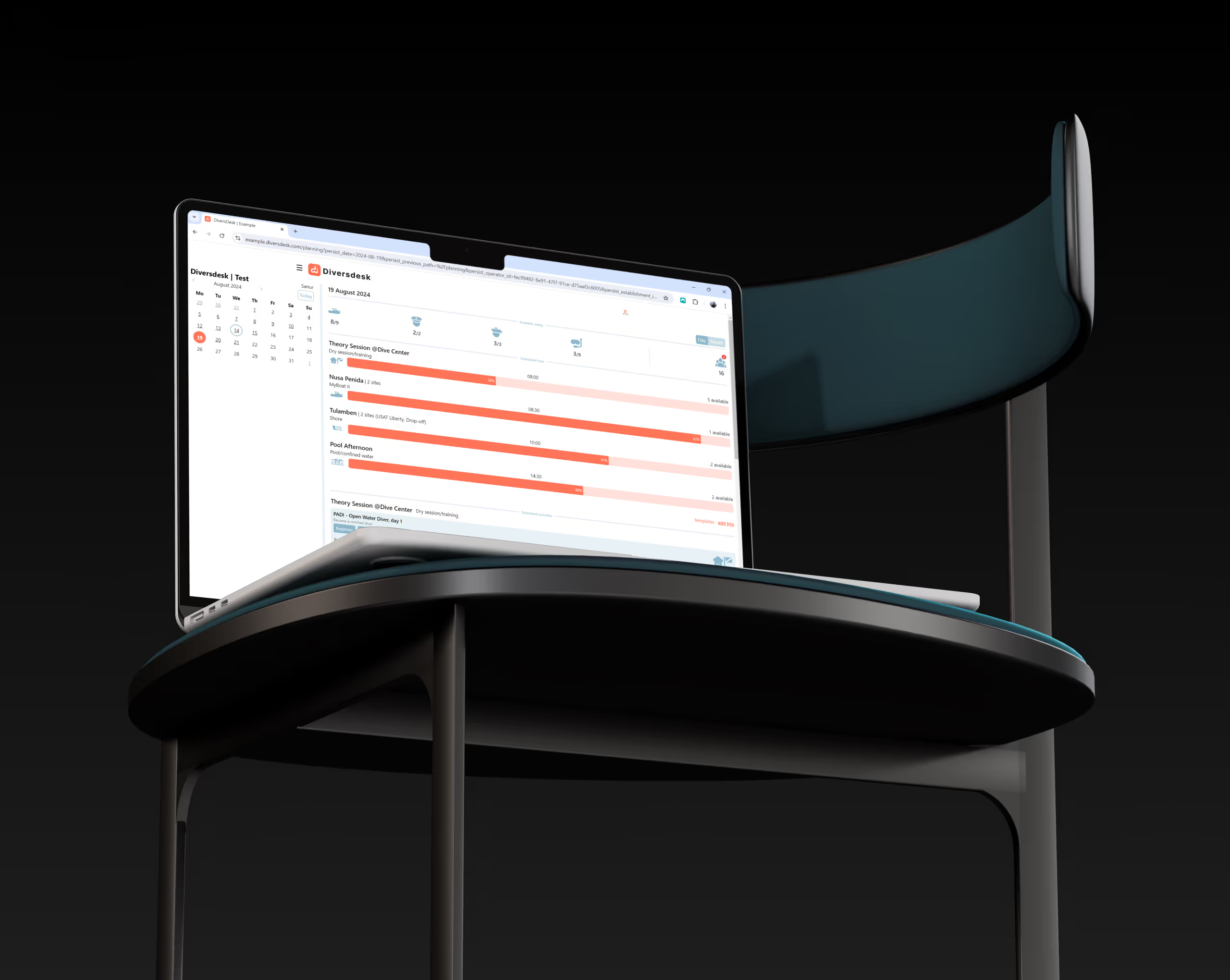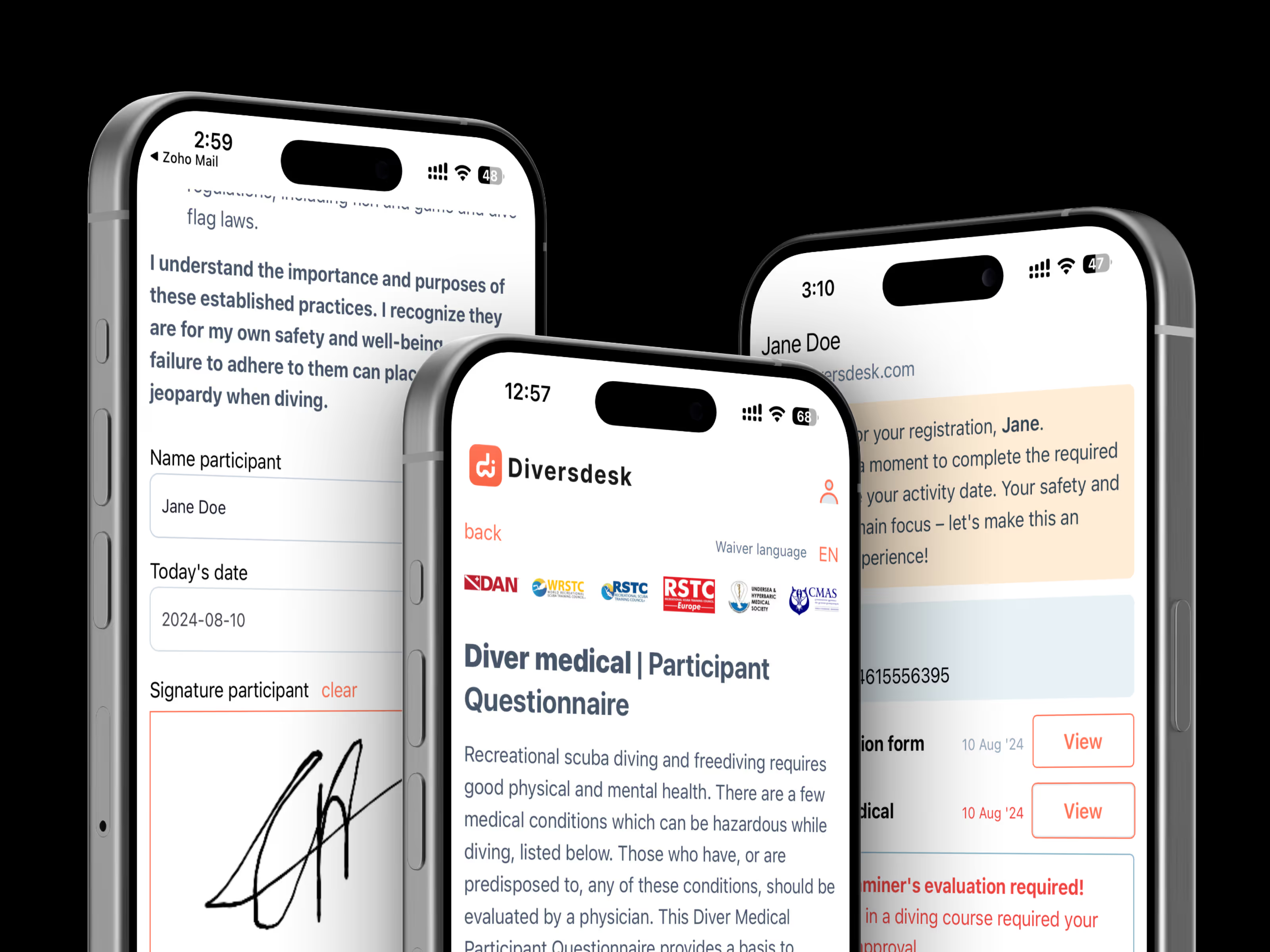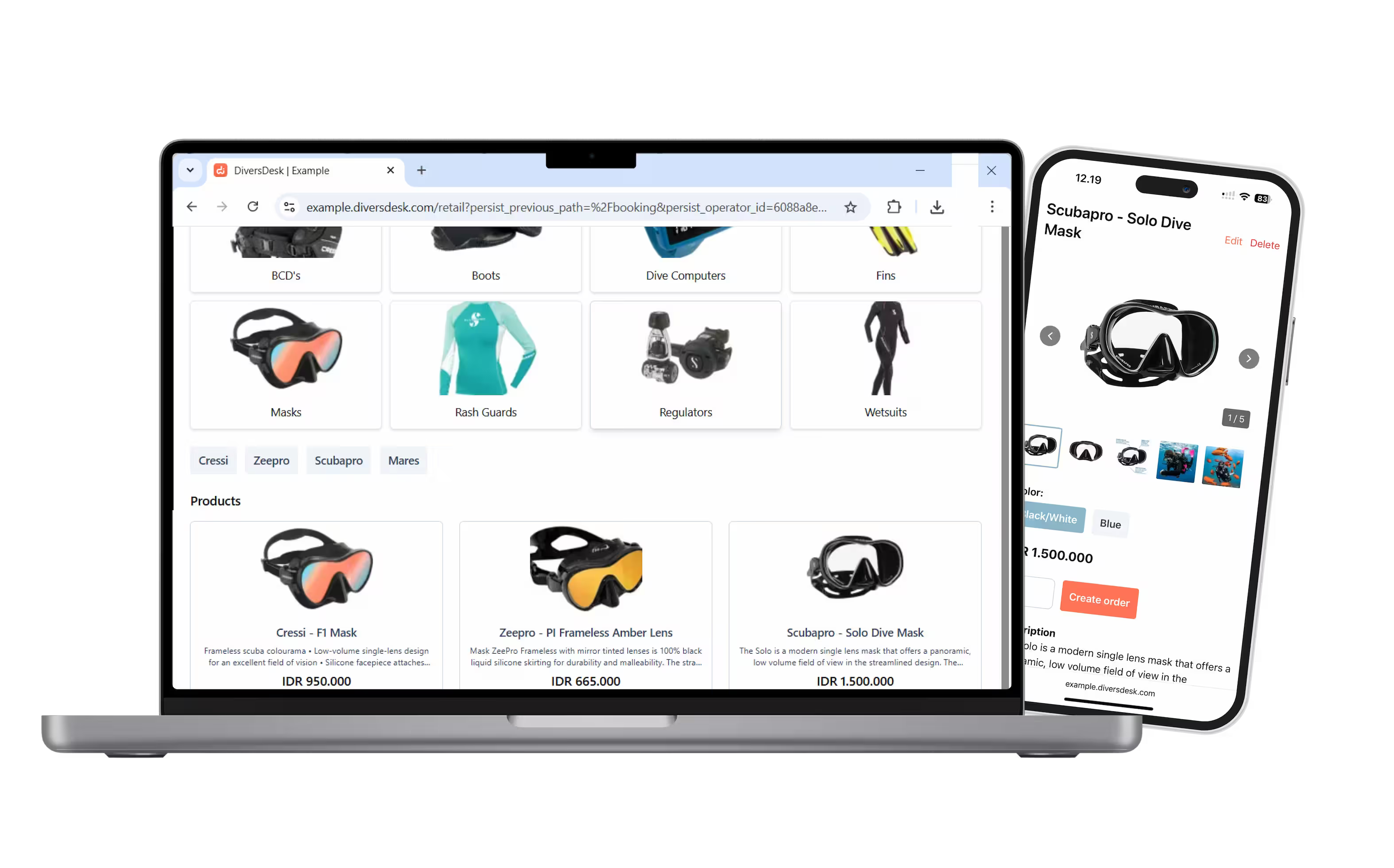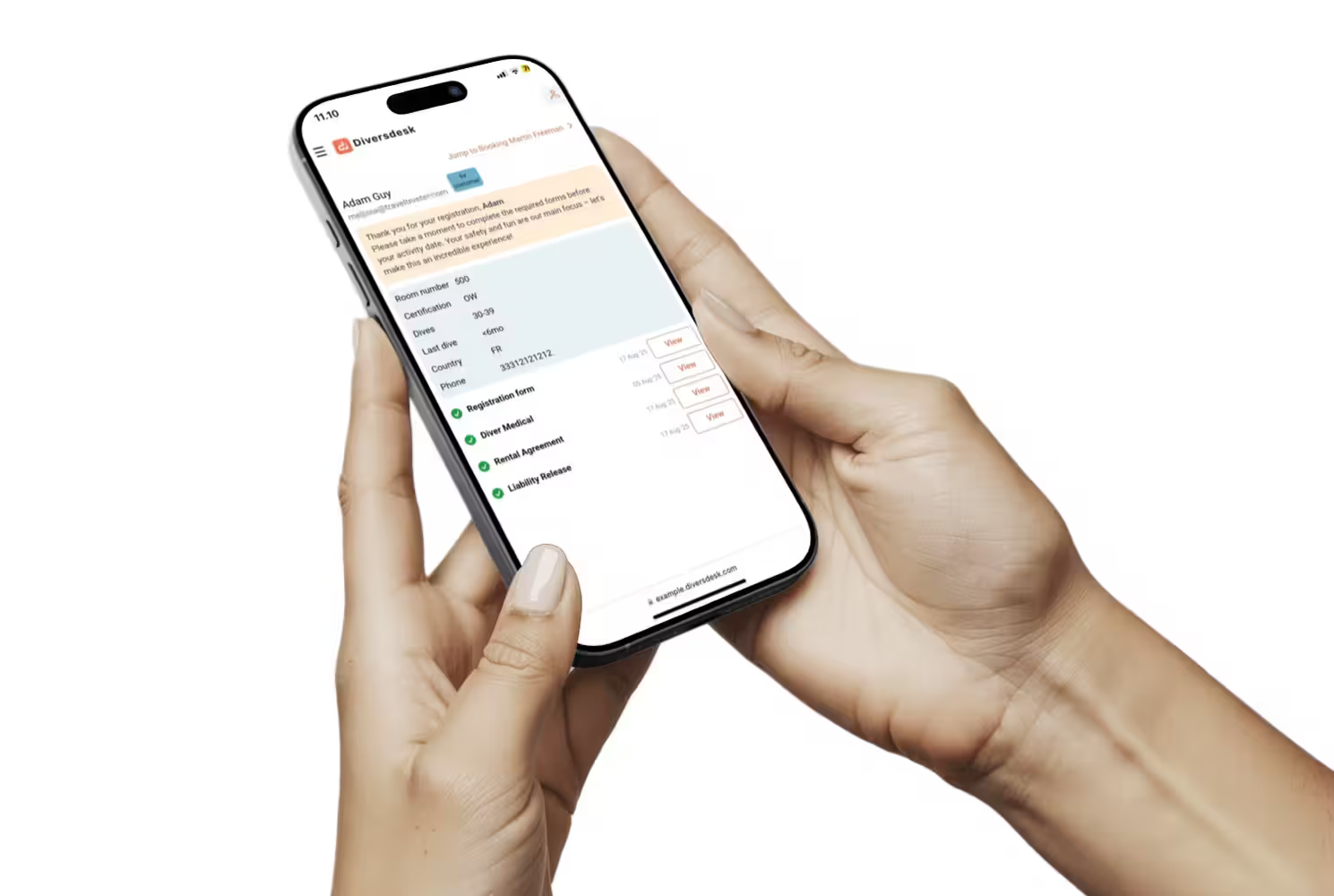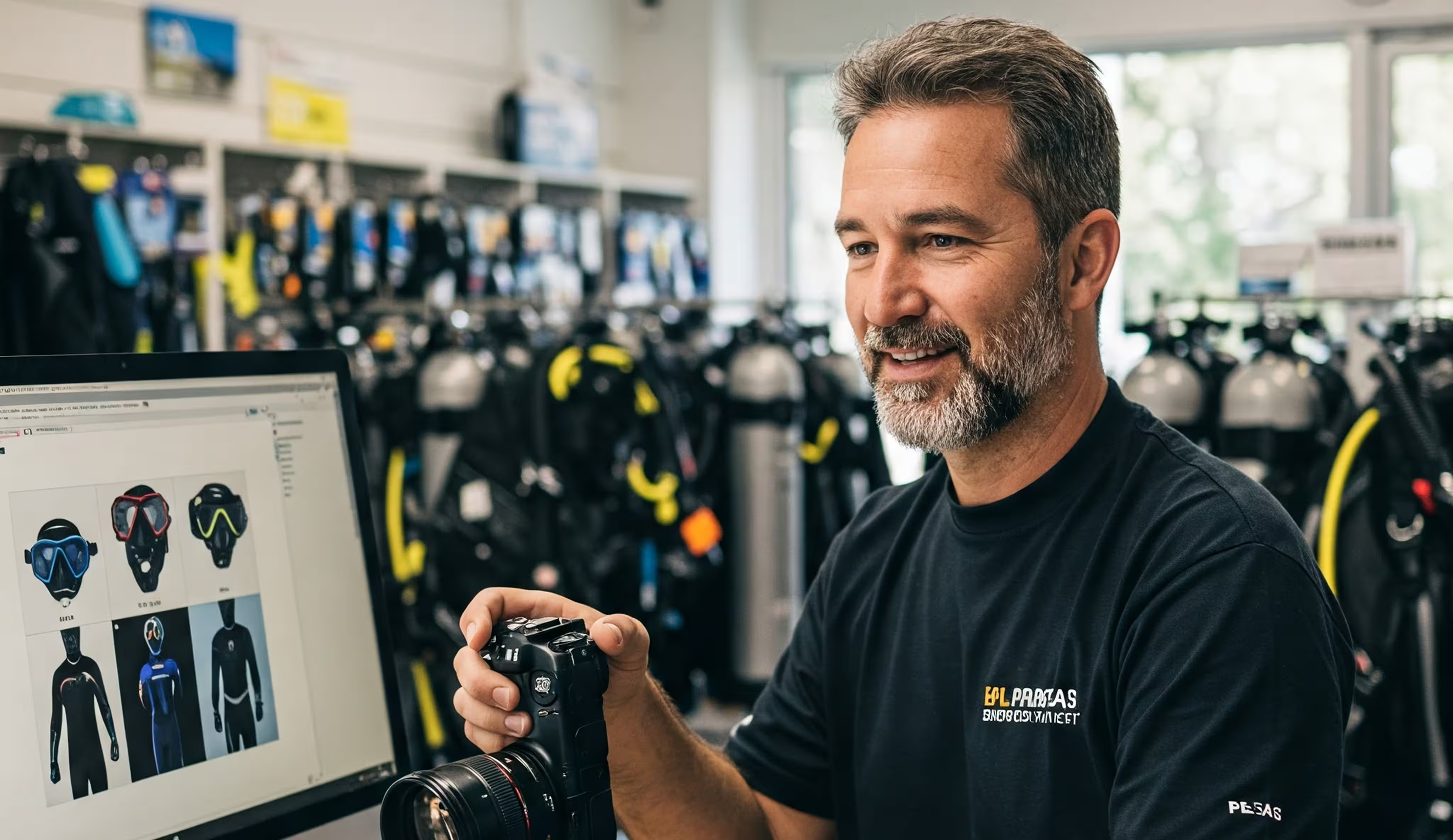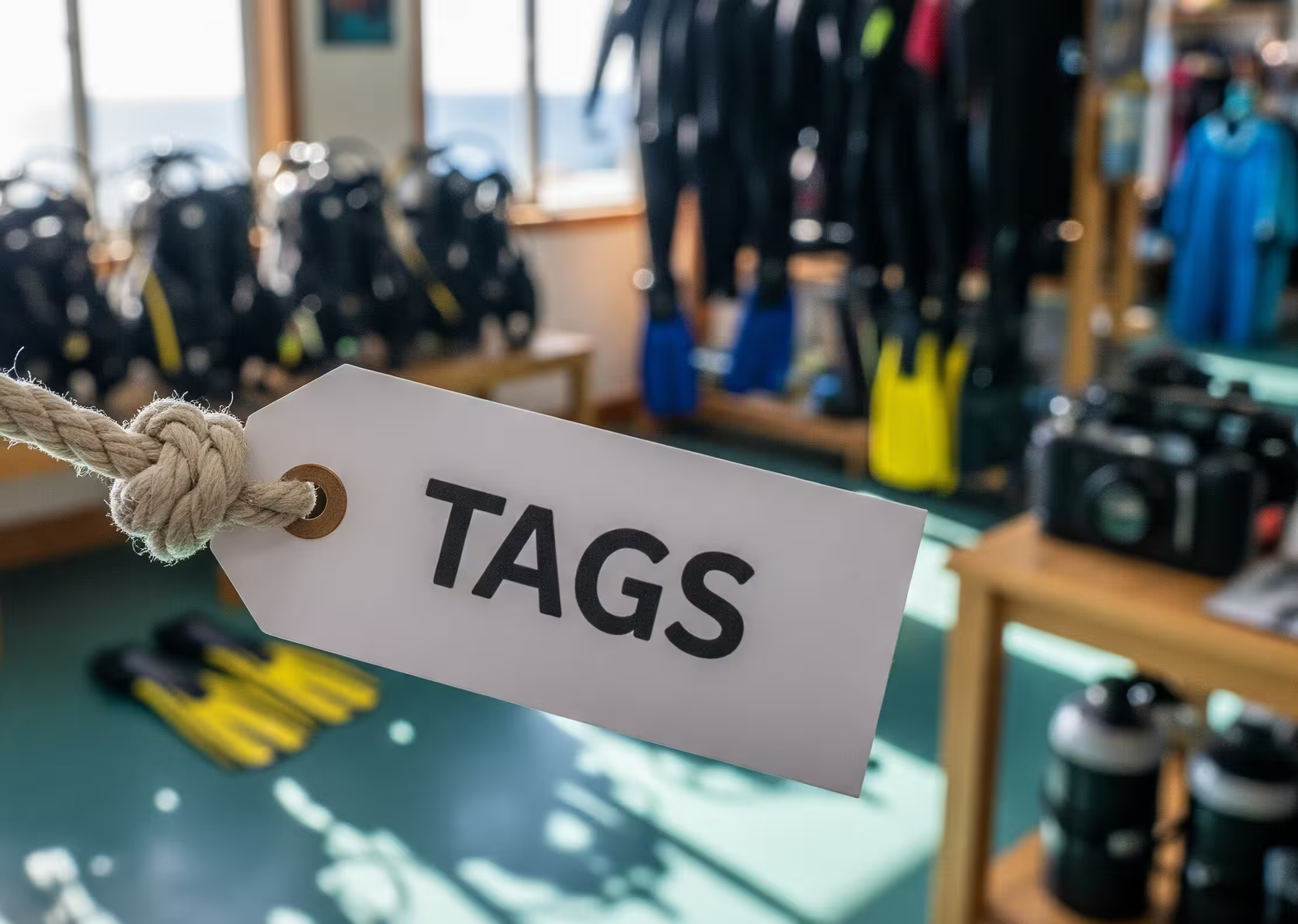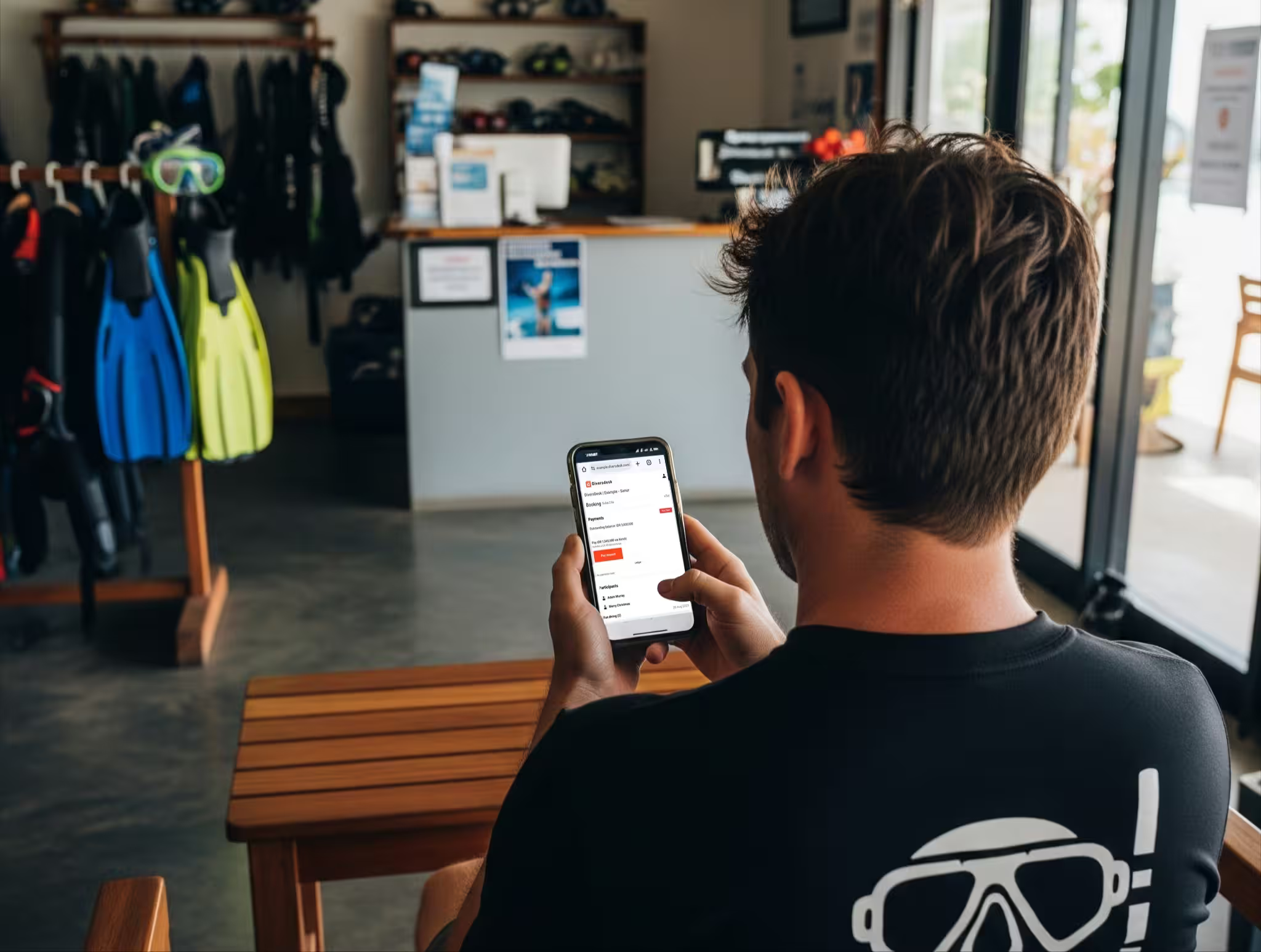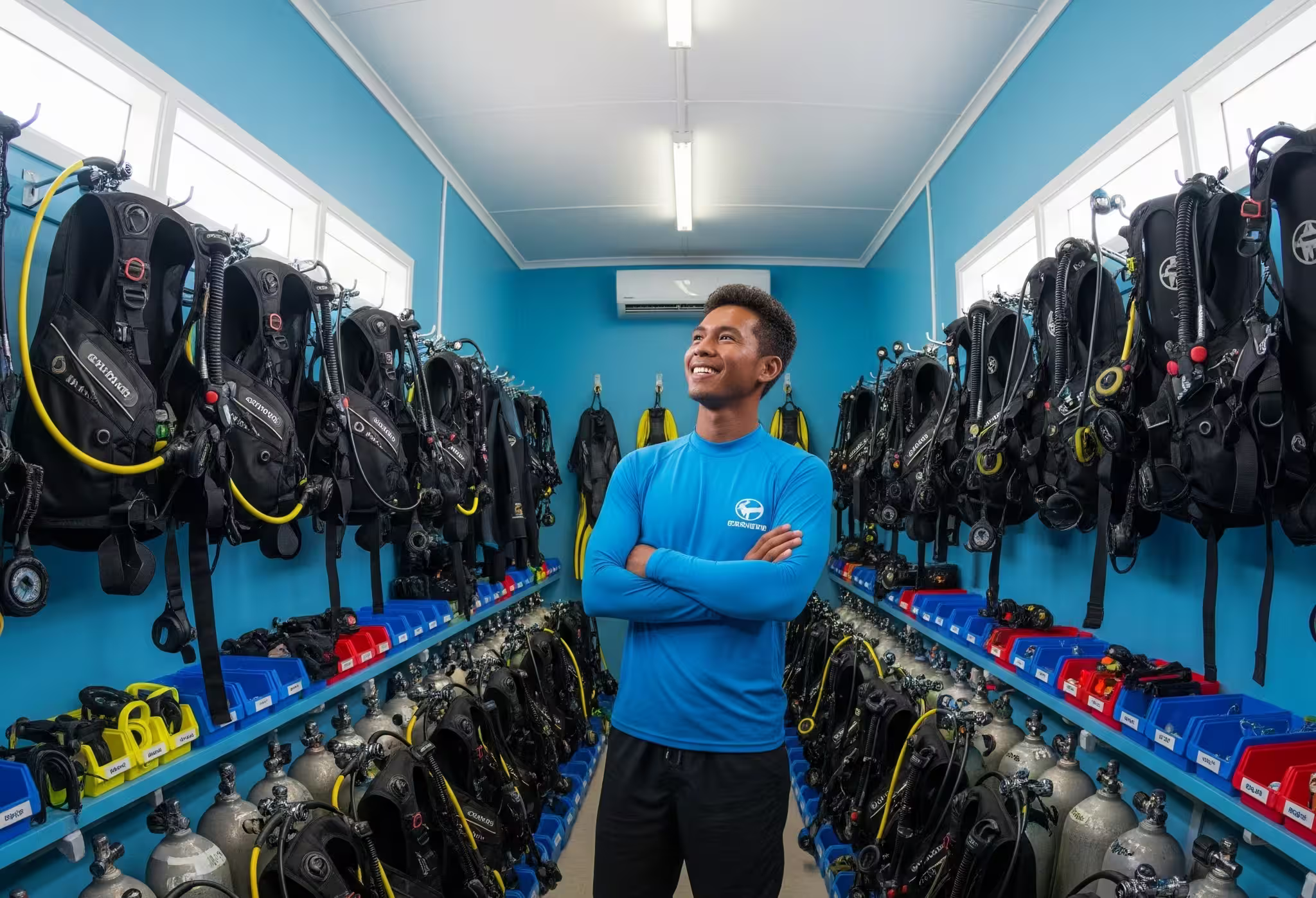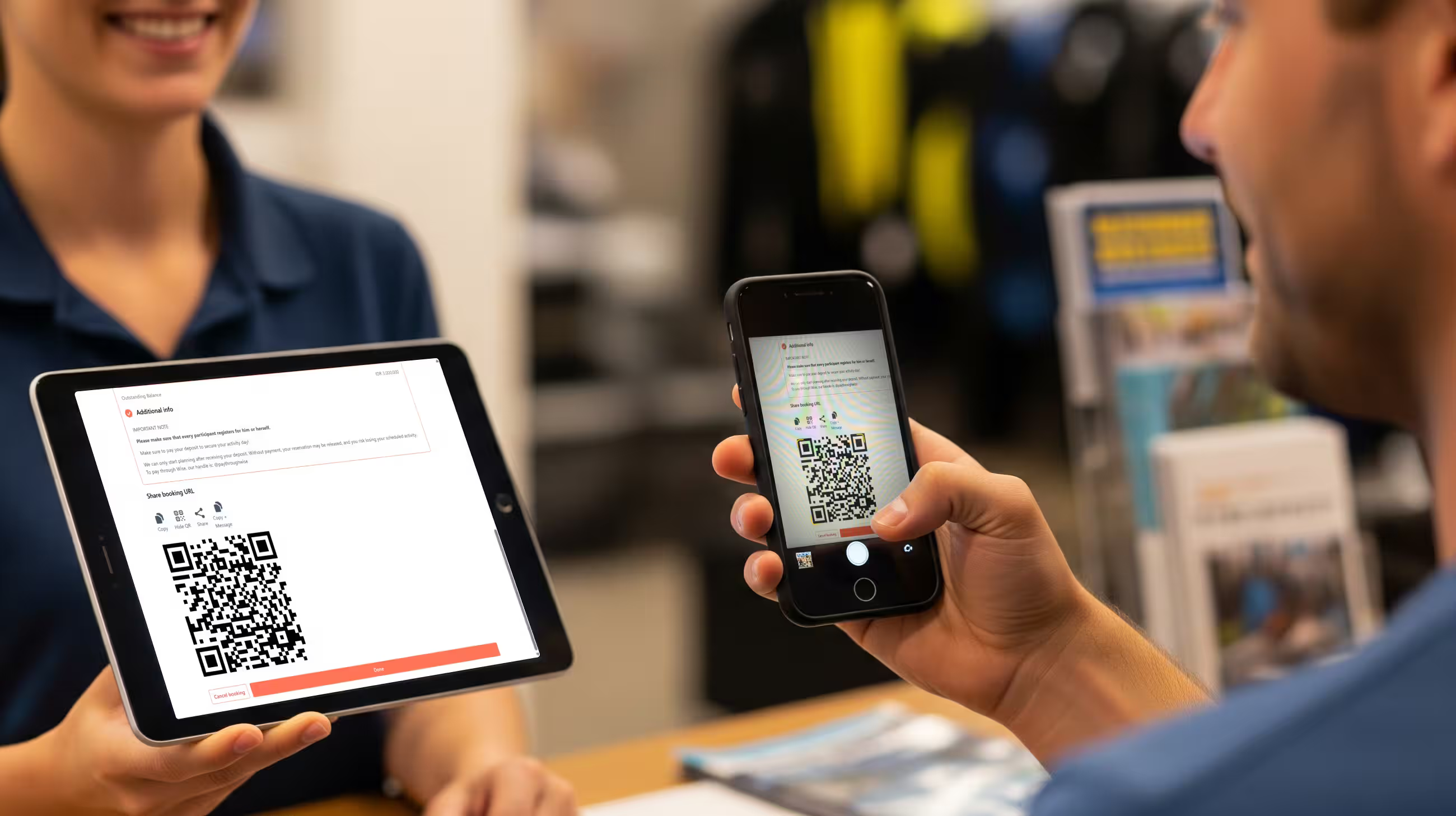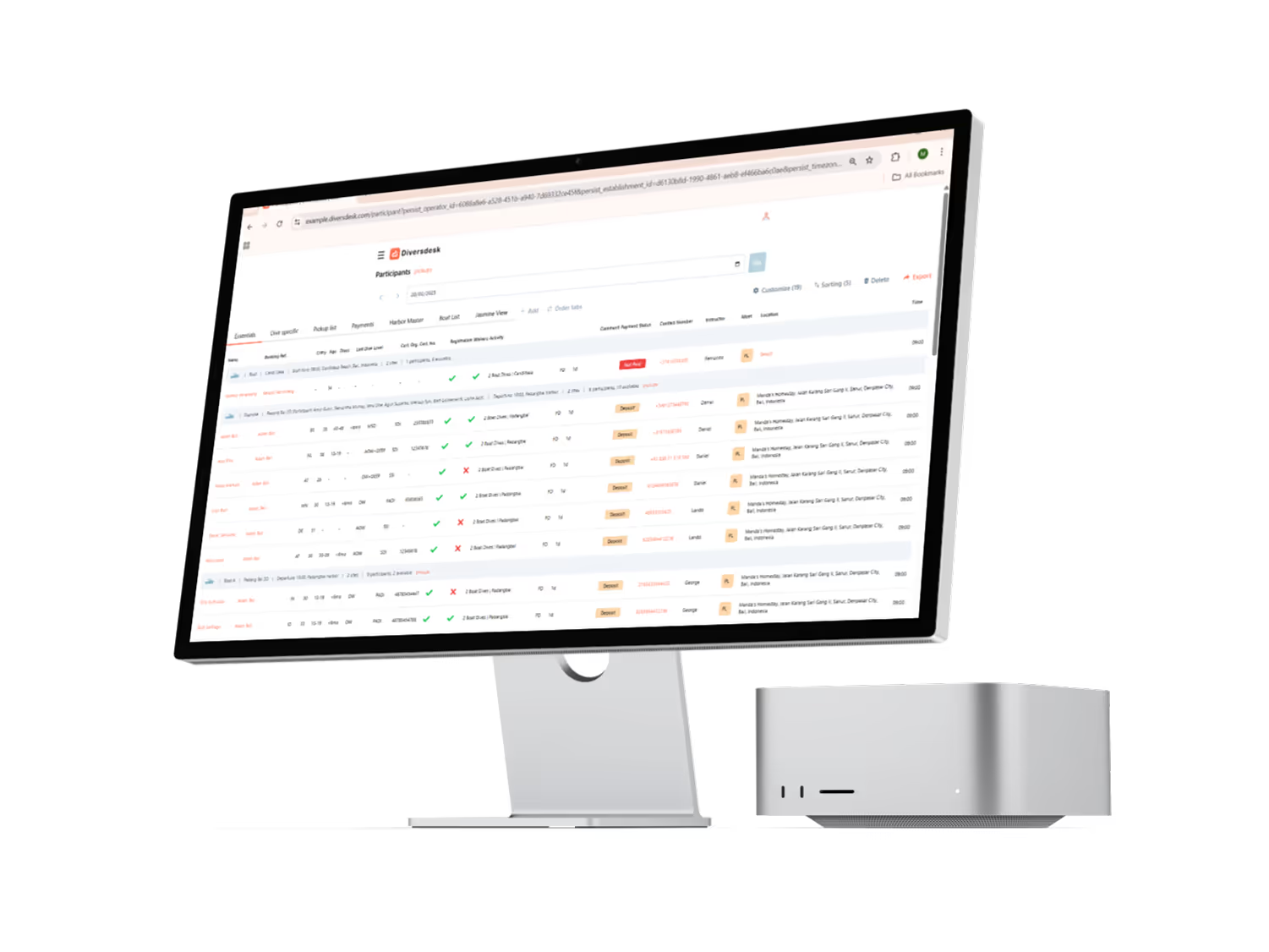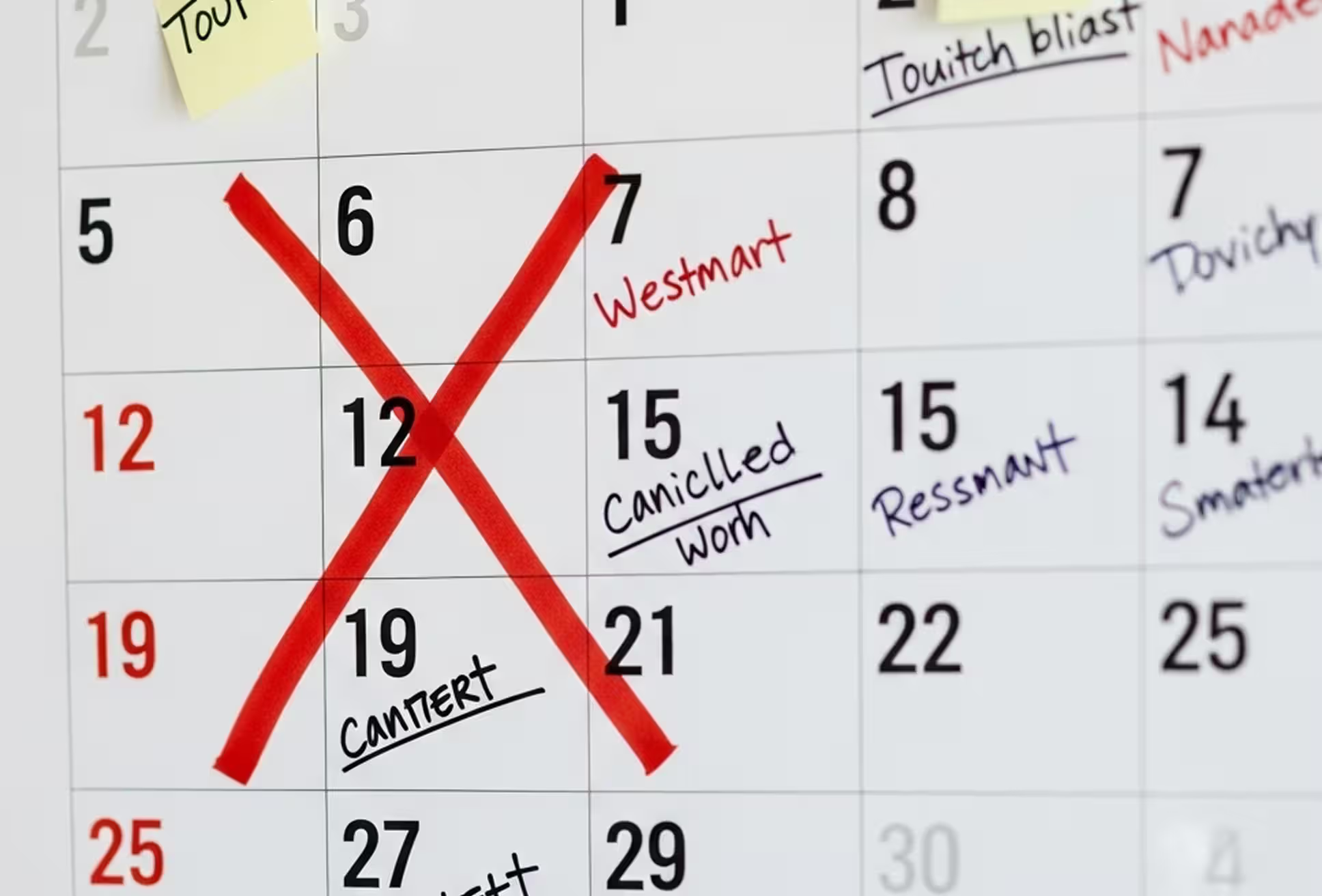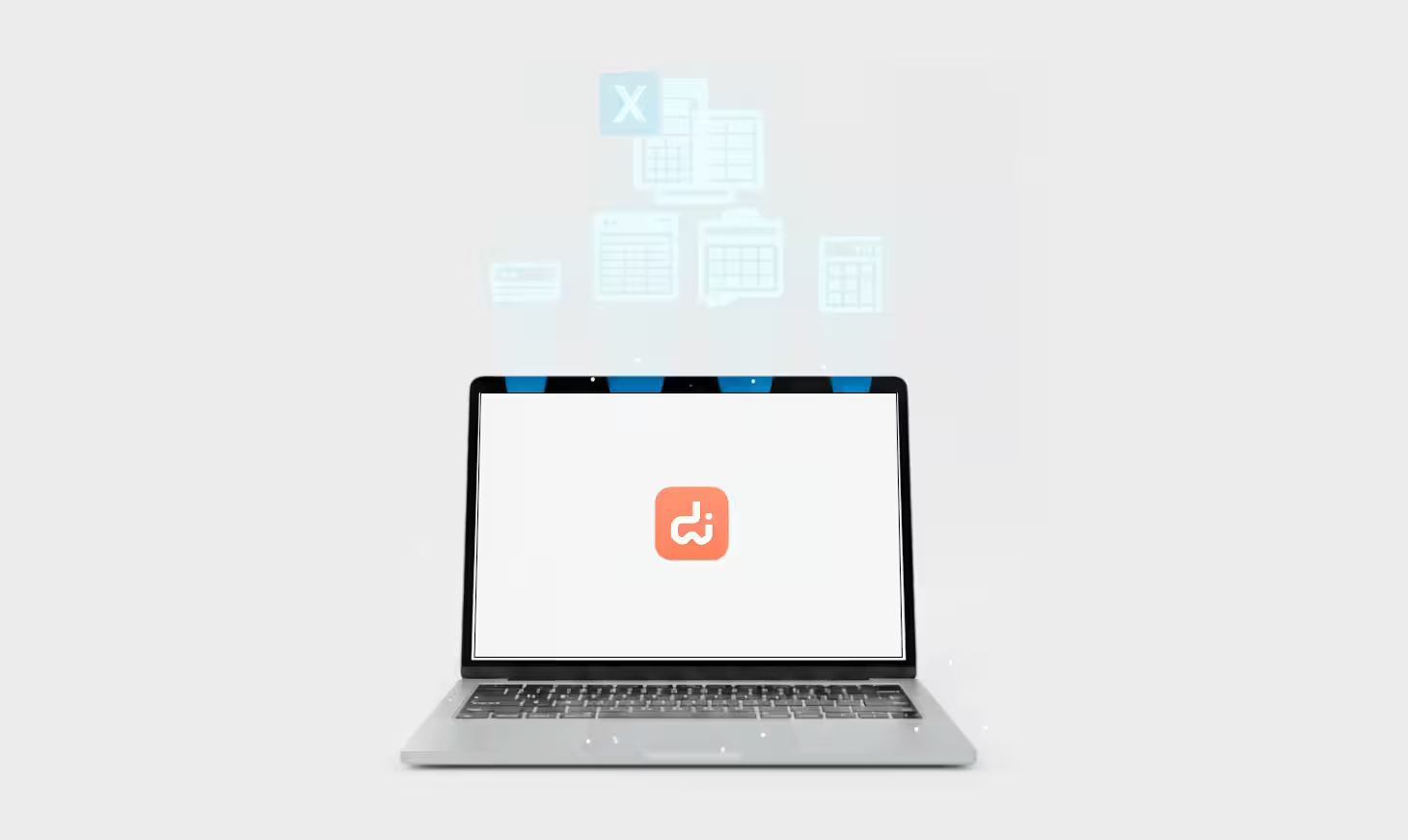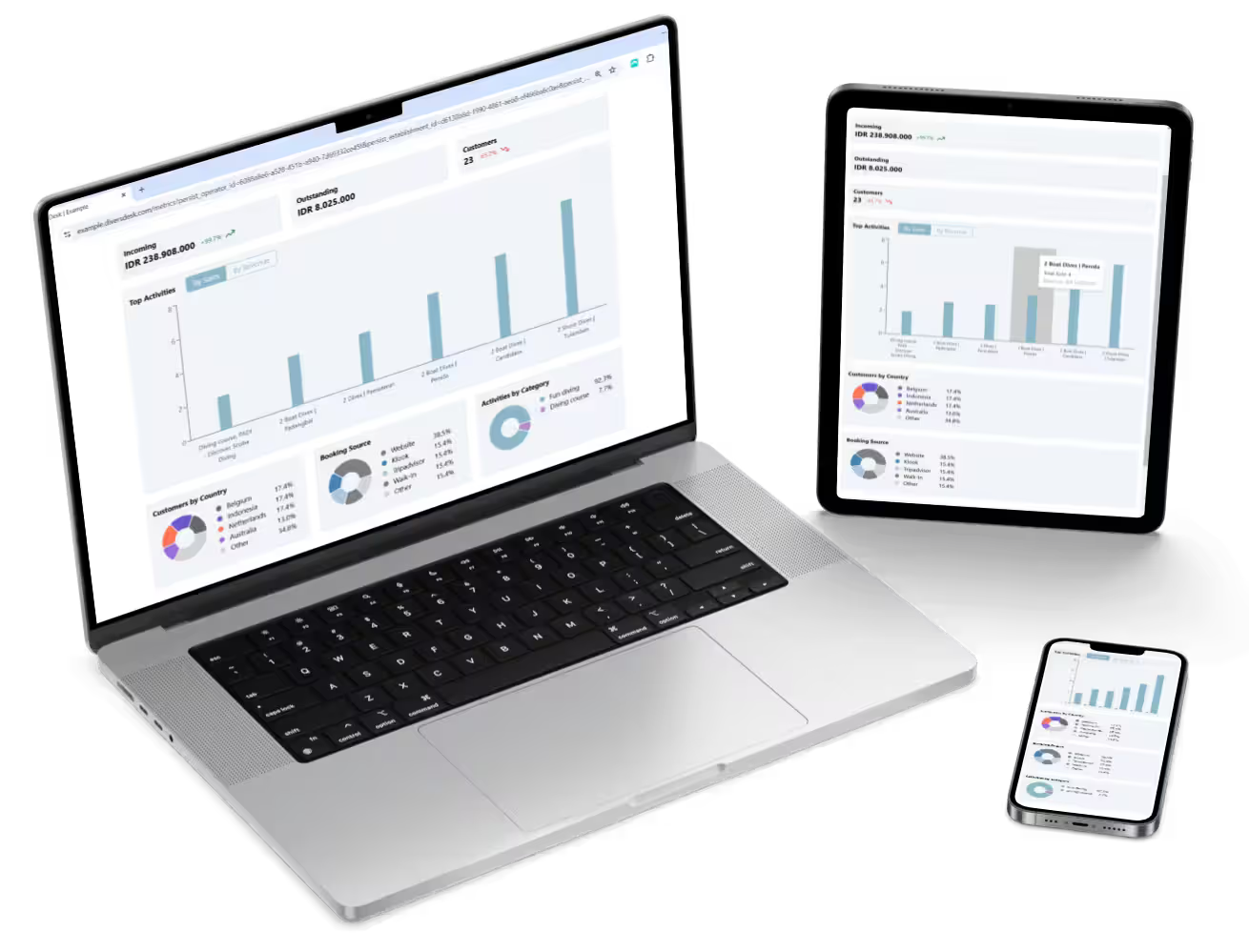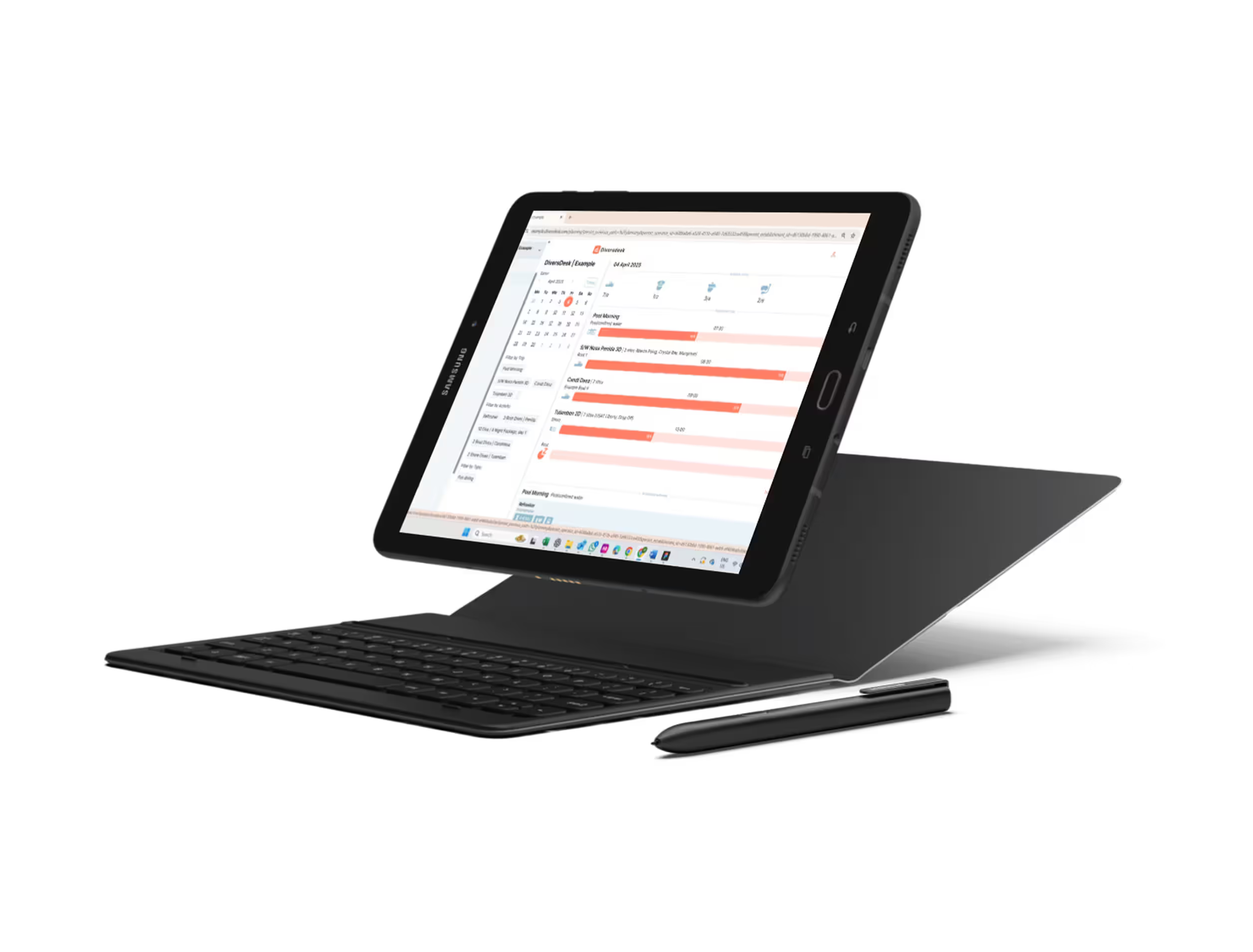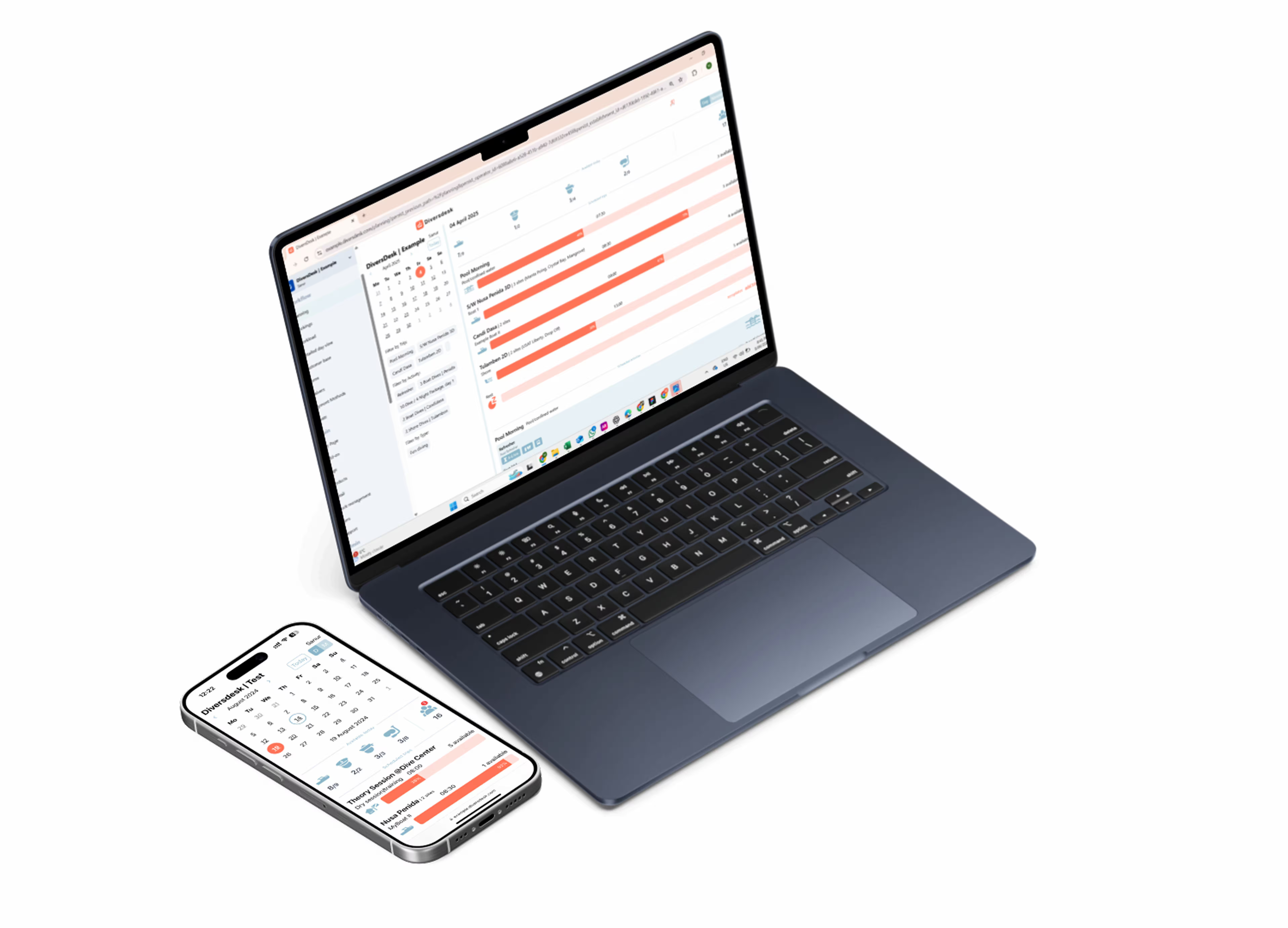Introduction
Running a dive centre sounds like a dream job. You’re surrounded by the ocean, meeting people from all over the world, and sharing unforgettable underwater experiences. But I think anyone who's actually done it knows it’s not all sunsets and sea turtles. There’s the bookings, the staff scheduling, the gear, the waivers, the follow-ups. It’s a lot to juggle. And in my opinion, this is where many dive shops start to struggle.
I’ve seen plenty of shops using WhatsApp to manage bookings, clipboards for waivers, and whiteboards for schedules. It works until it doesn’t. When things get busy, it becomes a mess. Trips get double booked, paperwork goes missing, and while that’s happening, customers wait around with no idea what’s going on. I don’t think these problems happen because people don’t care. It’s usually because the tools are outdated. And with digital transformation changing every industry (source), I think a good management system should do more than save time. It brings ease and helps your operations run smoothly, without the stress of admin headaches.
Let’s take a look at the common mistakes dive centres admin make behind the scenes, and how the right tool like Diversdesk can help you avoid them.
Mistake #1: Losing Paper-Based Waivers
Paper waivers get lost. They get wet, smudged, or forgotten altogether. And when something goes wrong, they’re the last thing anyone can find. It slows things down and creates more stress than it’s worth.
How Diversdesk Helps
With Diversdesk, waivers are fully digital. Guests sign them before they even show up, on any device. Everything’s stored safely in the cloud and linked to the booking. No printing. No piles of paper. And when you need it, just a few clicks and it’s right there.
Mistake #2: Double Bookings and Scheduling Confusion
Some dive centres still run their schedule on a whiteboard. Others use group chats or jot things down in a notebook. In my opinion, it might work for a while, but the chances of confusion and overlap are high. One person moves a booking, someone else doesn’t see it, and suddenly you’ve got two groups showing up for the same trip. That’s how dives get missed and staff end up scrambling.
How Diversdesk Helps
The planner page in Diversdesk puts everything in one calendar and keeps it up to date. You can assign guides, boats, and trips with just a few clicks. Even when plans change, everyone sees the same schedule in real time. No mix-ups. No overlaps. No guessing. Just a clear, shared plan that actually works.
Mistake #3: Missing Payment
A lot of dive shops deal with this more than they realise. A diver joins the trip, signs the form, gears up, and goes diving. Everyone’s happy until someone asks later if they actually paid. Maybe they paid in cash and no one wrote it down. Maybe the booking came through a message and slipped through the cracks. Either way, someone has to chase it or the money is gone.
How Diversdesk Helps
In Diversdesk, every booking shows a clear payment status. You can see right away who’s paid, who hasn’t, and what’s still pending in the detailed day view. With one click, you can update the payment. Your finance team gets instant updates, so there’s no confusion and no awkward follow-ups. And if you connect it with Xendit, payments update automatically, making your operations even smoother. No more errors. No more missed payments.
Mistake #4: Losing Track of Gear Sales or Forgetting Add-Ons
Retail should be one of the easiest ways to bring in extra income, but it often gets messy. Stuff goes missing. Stock levels don’t match. Someone sells a mask or a t-shirt and forgets to record it. Add-ons like torch rentals or nitrox upgrades get offered on the fly, and no one adds them to the system. By the end of the month, you’re guessing what was sold and where the money went.
How Diversdesk Helps
With Diversdesk, you can link add-ons right into the customer registration. Guests pick what they want up front, and the system updates the invoice automatically. It’s simple and it cuts down on mistakes.
The POS system keeps everything on track. Every sale and add-on goes into the system straight away. You can see what’s in stock, what’s selling, and what needs to be restocked, so nothing gets missed. Your team stays organised and your numbers stay clear.
Mistake #5: No Record of Diver History
Not knowing a diver’s history makes everything harder. You don’t know if they’re a first-timer or a rescue diver. You don’t know if they’ve done three dives this week or none in the past year. That kind of guesswork can lead to awkward briefings, mismatched groups, or worse, safety issues. It also makes it tough to offer something personal or recommend the right next step.
How Diversdesk Helps
Every diver in Diversdesk is recorded as soon as they register. You can see their past bookings, certifications, gear preferences, and any notes from previous dives. Instructors can check everything before the dive and show up fully prepared. It makes things safer, builds trust, and shows your guests you actually remember them. And when they come back, you pick up right where you left off.

Final Thoughts
Admin mistakes might seem small at first, but they build up fast. One missed payment here, one double booking there, and suddenly your team is overwhelmed and your guests are frustrated. In my opinion, admin is one of the most important parts of running a dive centre, as also mentioned in this article that administrators support the smooth running of daily workplace operations and provides vital support for organisational tasks. When it falls apart, everything else starts to feel harder than it should be.
Most of these problems are easy to avoid with the right system. Diversdesk helps you stay on top of bookings, waivers, payments, gear, and more without all the chasing. You spend less time fixing problems and more time focusing on your divers. Keep it simple. Keep it clear. Let the software do the admin so you can get back to the ocean.






